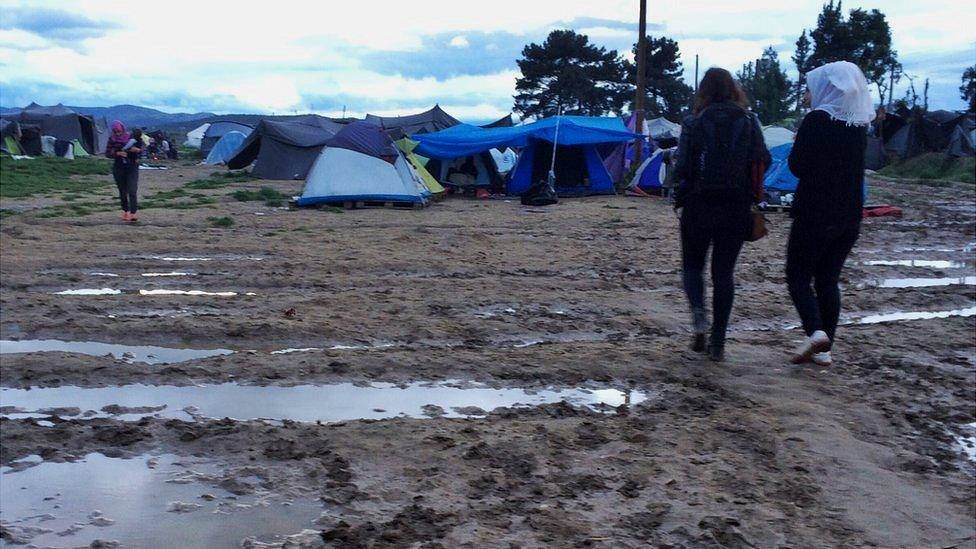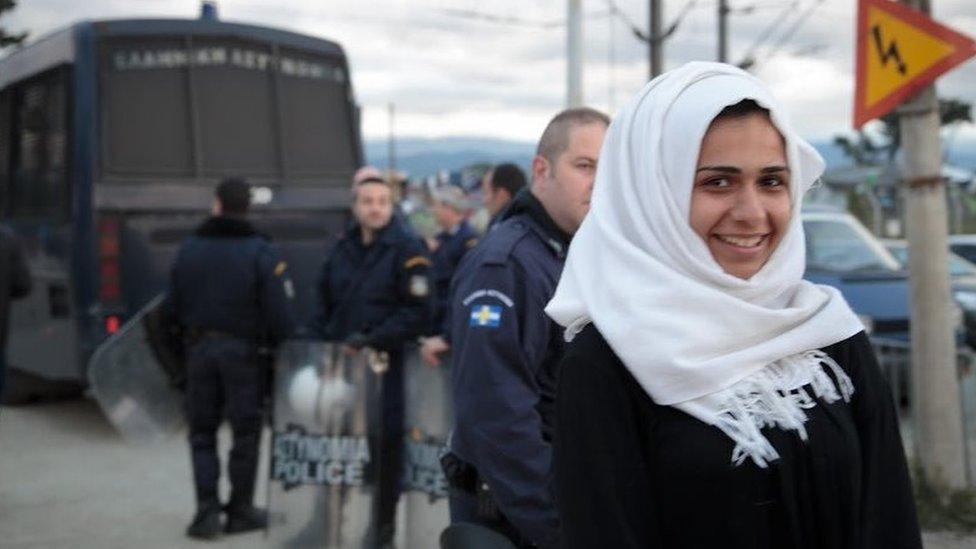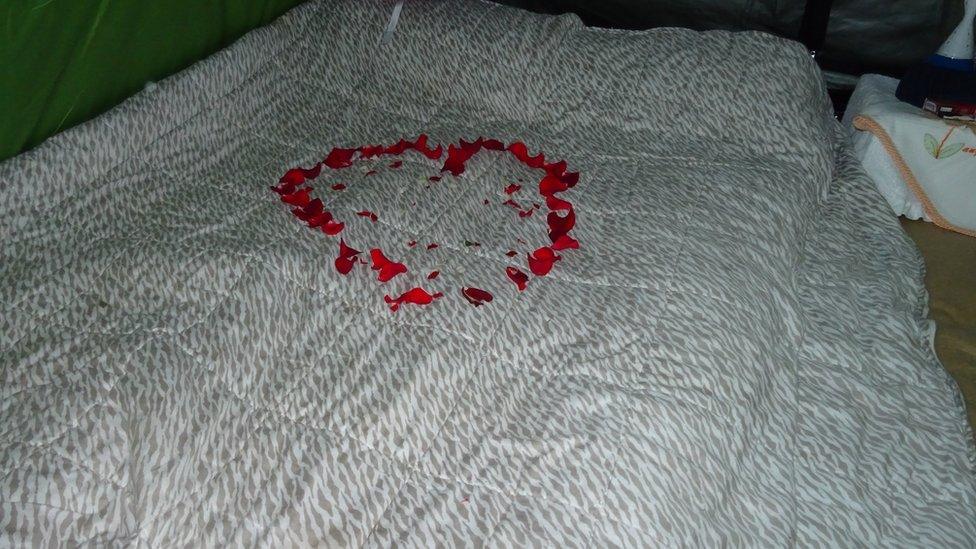Migrant crisis: Big Greek wedding for Syrians in muddy camp
- Published
A wedding dress has been donated to a refugee camp in Greece for couples who want to marry there.
It has been a tough week for the refugees camped out on the northern Greek border with Macedonia.
First some were hit by tear gas as they tried to cross the border into Macedonia, then the stormy weather played havoc with their fragile tents. Most of the tents here were donated by charities but they are not fully waterproof.
Despite the squalid conditions, the makeshift camp of Idomeni is witnessing something of a marriage phenomenon. In the past few days, a handful of couples have become engaged and the camp has become a wedding venue for the first time.
Many of the refugees and migrants at Idomeni have been here since the main refugee route to northern Europe was closed off almost two months ago.

Rain has turned the squalid Idomeni camp into a sea of mud
They stayed hoping the borders would reopen, but nothing has changed and they are trying to work out how to move on with their lives.
They are among more than 50,000 people stranded in Greece. While others have relocated to temporary camps organised by the government and the army, those at Idomeni are staying put.
They fear being forgotten and demand safe passage to continue their journeys.
"Life here is still tragic," explained one woman from Damascus. "At least in Syria if you die, you die once. Here you die every day."
But life at Idomeni is also about survival and a constant search for normality.

Among the migrants and refugees here are a man selling Greek coffee for a euro, a barber with one solitary chair for his clients and a falafel-maker, who left his restaurants behind in Syria - to be destroyed.
The community even has a TV reporting team which regularly uploads videos to social networking sites.

Despite the anxieties of a long wait at the border, some still show spirit and determination
Very special gift
Saher and his fiancee, Roquia, had been engaged for four months. They wanted to wait until they reached Germany to be married but, as they realised that might take years, they decided they could not wait any longer.
"The borders won't open anytime soon, so we thought why not marry now?" said Saher. "I am happy of course to be married, but I am sad too.
"My only wish is that eventually the whole of Syria will be safe and I can return."
As word got round that the couple were to have a party, the news also reached the deputy mayor of nearby Paionia, who also happens to own a wedding dress factory. Without hesitation, he donated a dress, on the condition it be used afterwards for other women wishing to marry.
"People are living in a period of difficult times - they don't have money, they don't have food, they're displaced, they're damaged," said the deputy mayor, Ioannis Avramopoulos.
"It was nothing to donate this dress. I hope the couple grow old together in love."
For once, there were no tears of sadness in the camp, but tears of joy and an atmosphere of celebration. With dancing and music blaring from mobile phones and small speakers, a fire was lit.
Small lamps were brought by volunteers, rose petals were thrown onto a makeshift honeymoon suite - a tent raised on wooden planks so as not to get flooded. Inside it, a little table had been set up with perfume and cigarettes.
"My parents are still in Syria and cannot be with me - and that makes me very sad," said Saher. "But the people of Idomeni have become my family now."

The bed in the makeshift honeymoon suite - with rose petals
The guests at the party, eager to congratulate the couple, brought with them wishes for a happy future and prosperous marriage, but no gifts. Many have spent their life savings on escaping violence and have few euros left.
They often show visitors to the camp pictures and photographs of what they left behind. Their homes are now a pile of grey rubble.
One woman is permanently reminded of the horrors she managed to escape. Her seven-month-old baby bears the scars of cigarette burns inflicted by so-called Islamic State militants.
The EU is still struggling to reach a viable solution to the migrant crisis, and those trapped in the middle are beginning to understand two certainties. One is that the borders opposite are not opening any time soon. The other, that although they may no longer have much, they at least have each other. And life must go on, somehow.